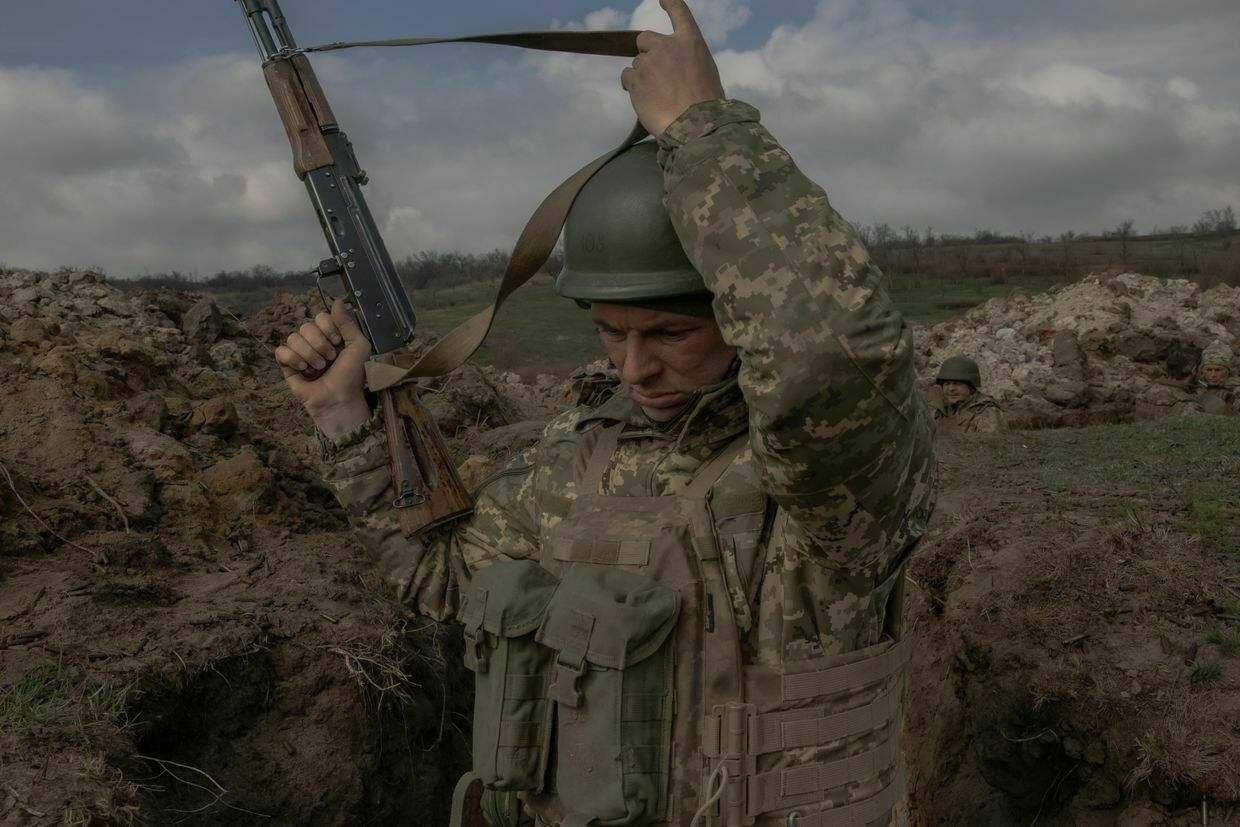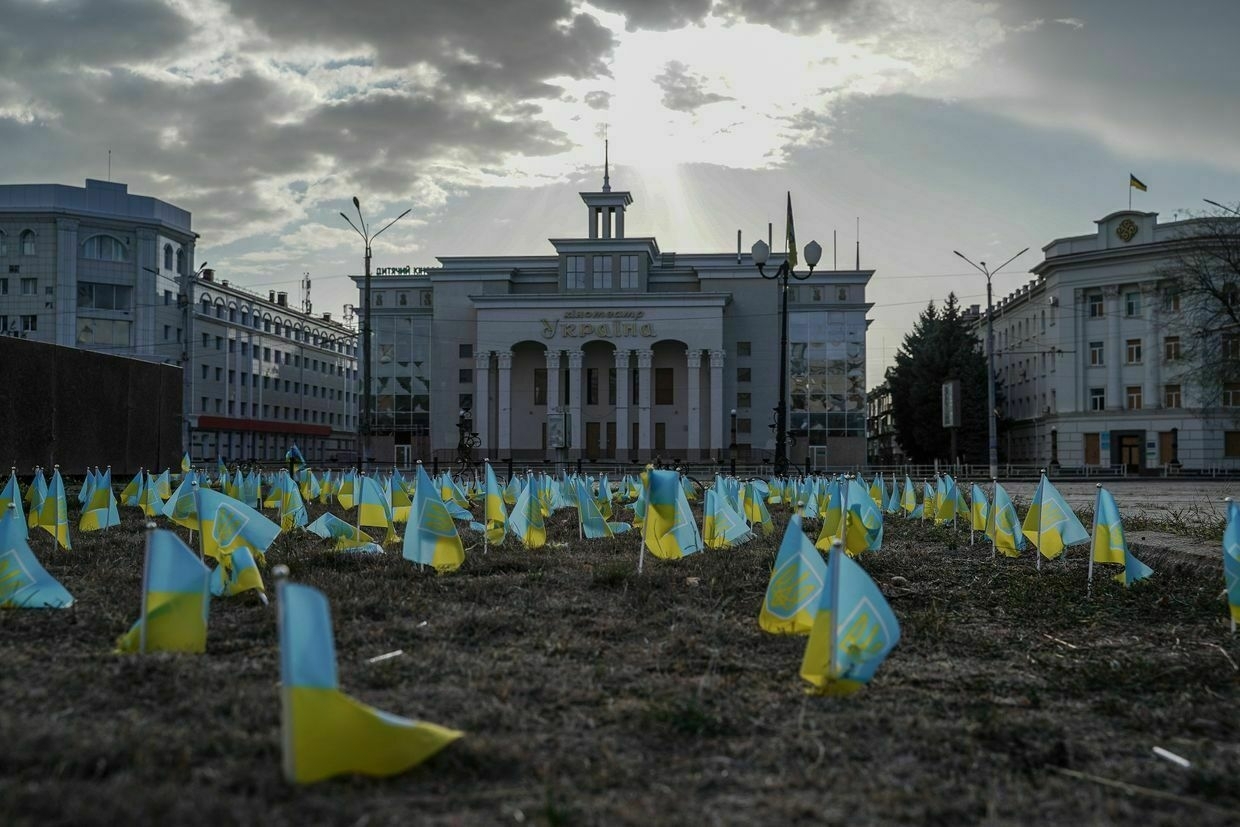
Zaporizhzhia — During what would usually be evening rush hour in Zaporizhzhia, cars move easily through main streets that were once choked with traffic. As the shadows grow longer, soldiers calmly remove camouflage netting from the air defense weapons they’ll man against Russia’s deadly attacks until the sun rises the next morning.
Though the region’s capital city is less crowded than it once was, the sidewalks are still active with residents who have no plans to leave. Young couples push strollers alongside the river, while a nearby skatepark is full of teenagers practicing tricks. An upscale restaurant downtown had no free tables on the weekend, and soldiers poured out of a barber shop with fresh haircuts on their way to nearby shops.
In recent days, U.S. Special Envoy Steve Witkoff has reportedly proposed to U.S. President Donald Trump giving Russia unoccupied Ukrainian territory that Ukraine has full control of as the fastest way to secure a peace deal. President Volodymyr Zelensky has rejected this idea as an unacceptable “red line.”
Zaporizhzhia is the largest city in the Ukrainian-held territory that Witkoff has alluded to. The city has not released updated population figures since the full-scale invasion, but before 2022, it was Ukraine’s seventh-largest city, home to 710,000 residents. In the past year, Russia has stepped up its use of aerial glide bombs on the city, which have caused the vast majority of recent casualties there.
The other major administrative capital reportedly debated by Witkoff is Kherson, which was captured by Russia in 2022 and liberated after eight and a half months. Oleksandr Prokudin, the governor of Kherson Oblast, said in a January interview with Ukrinform that the city’s population has dropped to an estimated 66,000, a quarter of its pre-war population. Its residents are terrorized daily by Russian drone and artillery attacks.
Today, the hundreds of thousands of inhabitants living in the Ukrainian-controlled territory of these two oblasts anxiously watch the news and listen to foreign officials debate handing over the land they stand on.
“We hope that they (foreigners) will hear us, the people who live here, and hear that we want to remain Ukraine.”
The Kyiv Independent spoke with a dozen residents of Zaporizhzhia and Kherson oblasts, all of whom said they could not accept the idea of ceding to Russia the cities and towns they lived in.
“Every day, we read the news, watch all the live broadcasts from America, from the White House, everything that happens,” said Artur, who was born and raised in Zaporizhzhia. He declined to share his last name, citing privacy concerns for his family while walking downtown with his wife, Ina, and four-year-old son on a Sunday afternoon.
“I think this is the number one topic now,” he said. “We hope that they (foreigners) will hear us, the people who live here, and hear that we want to remain Ukraine.”
‘This peace deal is about these so-called five territories’
Moscow illegally annexed four partially occupied territories — Donetsk, Luhansk, Zaporizhzhia, and Kherson oblasts — in September 2022 through sham referenda, enshrining its possession over them in its constitution, a move that holds no weight internationally. Though it has failed to fully capture the territories, Russia continues to demand that Ukraine completely withdraw its troops from them. Moscow illegally annexed Crimea in 2014.
“This peace deal is about these so-called five territories,” Witkoff said in comments to Fox News on April 14. While he did not name the territories, they are widely understood to refer to the four partially occupied oblasts and Crimea.
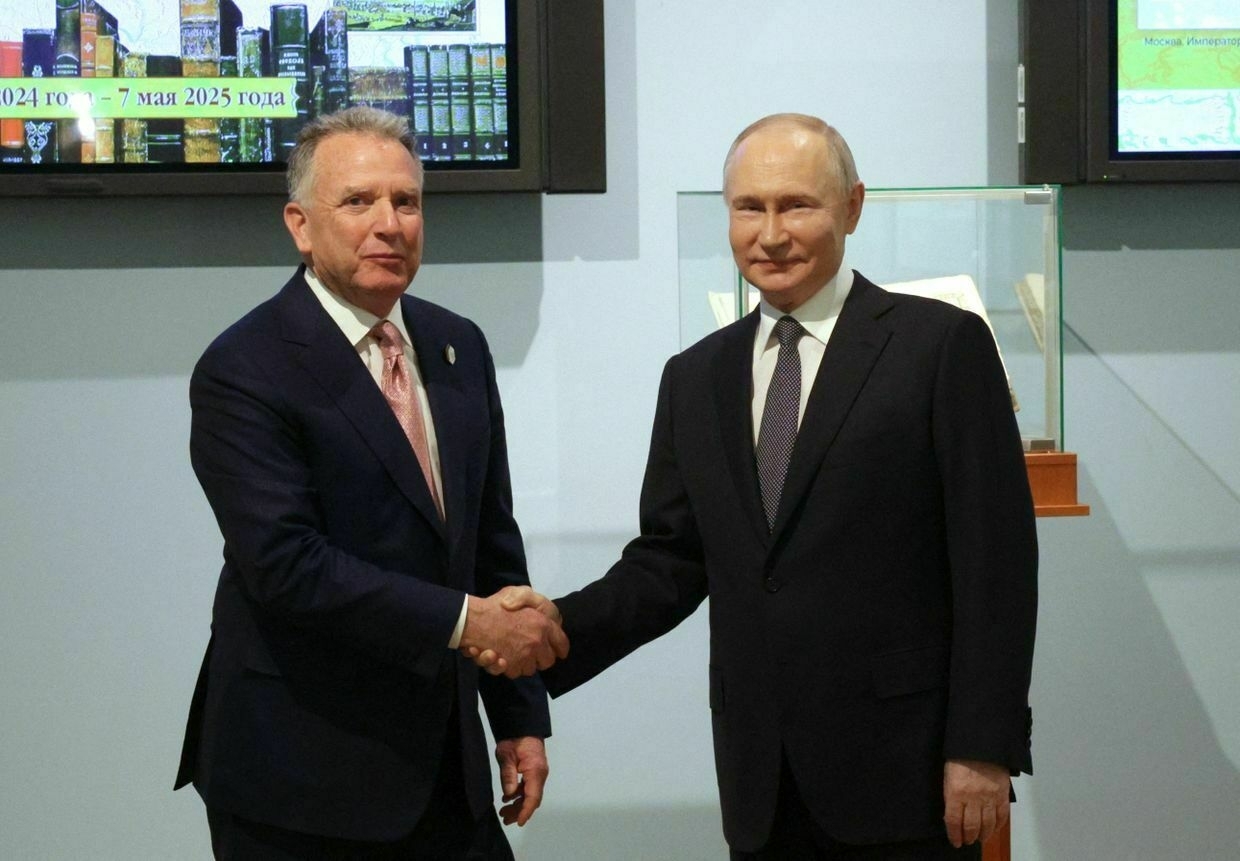
According to the Wall Street Journal, U.S. Secretary of State Marco Rubio and U.S. Special Envoy for Ukraine Keith Kellogg are urging President Donald Trump to resist territorial concessions to Moscow, suggesting Witkoff’s views on these territories are not shared throughout the entire administration.
Witkoff, who has alarmed Ukrainian officials with his friendly stance toward Russia, has parroted Russian propaganda lines about the oblasts.
In March, he said, “They are Russian-speaking, there have been referendums where the overwhelming majority of the people have indicated that they want to be under Russian rule.” Witkoff was widely denounced in Ukraine and by the EU for failing to note that the referendums were held effectively at gunpoint under occupation, with widespread voter intimidation and soldiers going door to door with ballot boxes.
Several residents of the territories who spoke with the Kyiv Independent acknowledged a few stumbles when articulating their feelings in Ukrainian. They grew up speaking Russian but were now working on improving their Ukrainian because of the war, they explained.
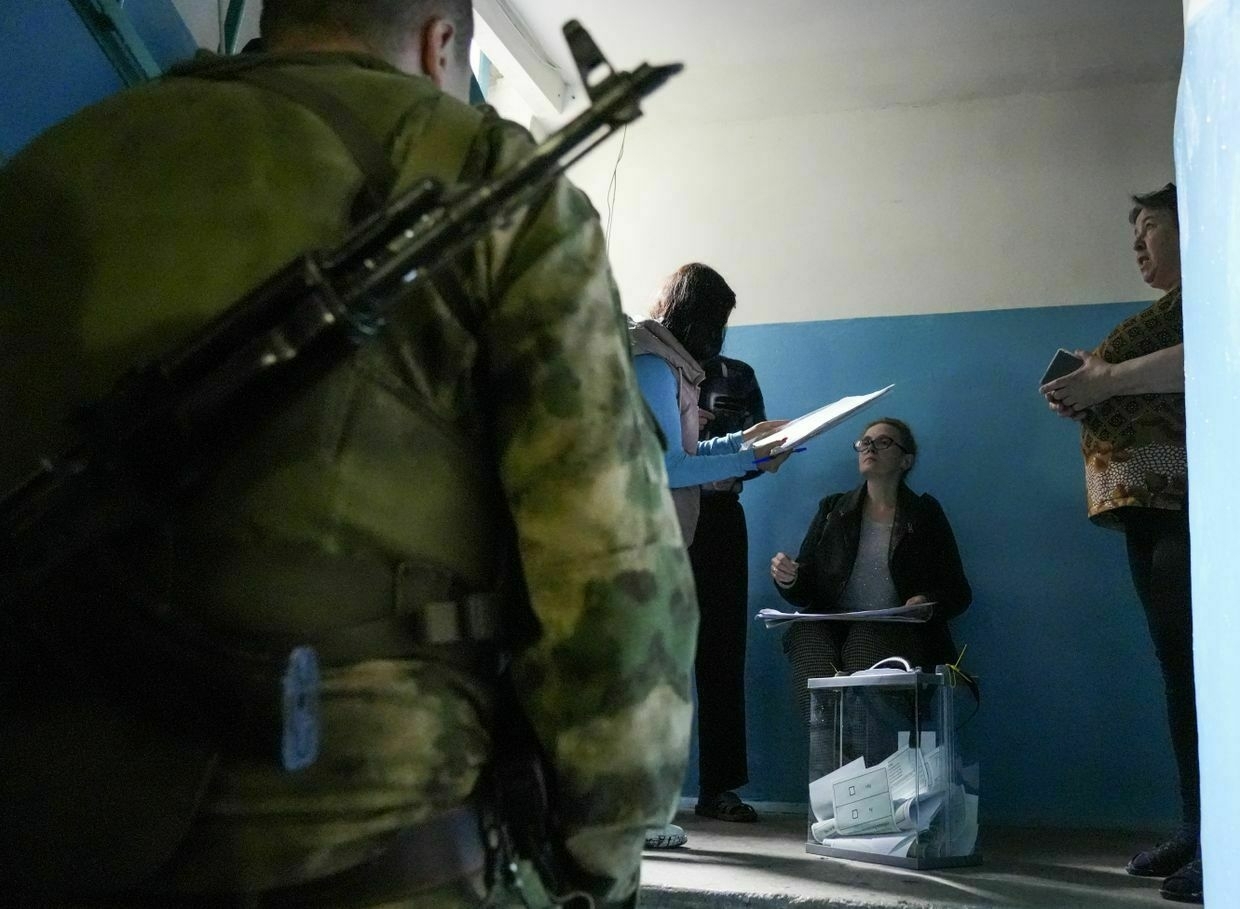
Many Ukrainians speak Russian as a consequence of centuries of Russian efforts to suppress Ukrainian culture, though the number has shrunk as more switch to Ukrainian after Russia’s initial invasion in 2014 and its full-scale invasion three years ago.
“Earlier we spoke Russian, but now, of course, I want to speak Ukrainian more because of what happened. They turned us into enemies,” Zaporizhzhia native Viktoria Haiduk told the Kyiv Independent while waiting at a bus stop with her two daughters under a grey sky in Matviivka, a village 15 kilometers (9 miles) northeast of the capital city and about 40 kilometers (23 miles) from the front line.
‘They killed so many Ukrainians’
Vita Hushchenko, a 48-year-old internally displaced resident of Zaporizhzhia’s capital city, had tears in her eyes when she recalled Huliaipole, her native hometown. “It was a very beautiful city. I always think about it,” she said. “We left everything there. Now everything in Huliaipole is destroyed. Such is life. It’s incomprehensible.”
Today, Huliaipole is located less than 5 kilometers (3 miles) from the front line and some 90 kilometers (56 miles) southeast of the regional center, Zaporizhzhia. The front-line community has been subjected to constant attacks from Russian positions over the course of the full-scale invasion, including artillery shelling and glide bombs.
Huschenko was blunt in her assessment: “I don’t want to live under the orcs,” she said, using a pejorative slang term for Russian soldiers.
Anton, a 47-year-old metalworker in Zaporizhzhia, said he believed Ukraine would never agree to cede the city. He asked the Kyiv Independent to withhold his last name, noting that he sometimes communicated with acquaintances in occupied areas of the region.
“Zaporizhzhia is a very large center,” he explained. “There is the university, many railway routes to Dnipro and elsewhere, bridges, industries, and electricity. If they hand over Zaporizhzhia, then that's it, Ukraine is already almost gone.”
Only 8% of Ukrainians would be willing to fully withdraw Ukrainian troops from Donetsk, Luhansk, Kherson, and Zaporizhzhia regions to end the war. Even fewer would be willing to recognize those regions as Russian, according to a poll published on March 20 by the Razumkov Center, a Kyiv-based public policy think tank.
The figure rises by two percentage points for regions in the east and by six in the south — a far cry from the “overwhelming majority” cited by Witkoff.
In February, the Institute for the Study of War assessed that Russia was unlikely to be able to capture the whole territories of Kherson and Zaporizhzhia in the short term, “if at all.”
“As long as Russia has the financial or military ability, they will fight to their very last ruble.”
If they gained control, “Russian authorities would likely employ the same tactics of oppression, displacement, and forcible assimilation against Ukrainian civilians living in these areas as they have employed against the millions of Ukrainians who have been living under Russian occupation for over three years,” ISW wrote.
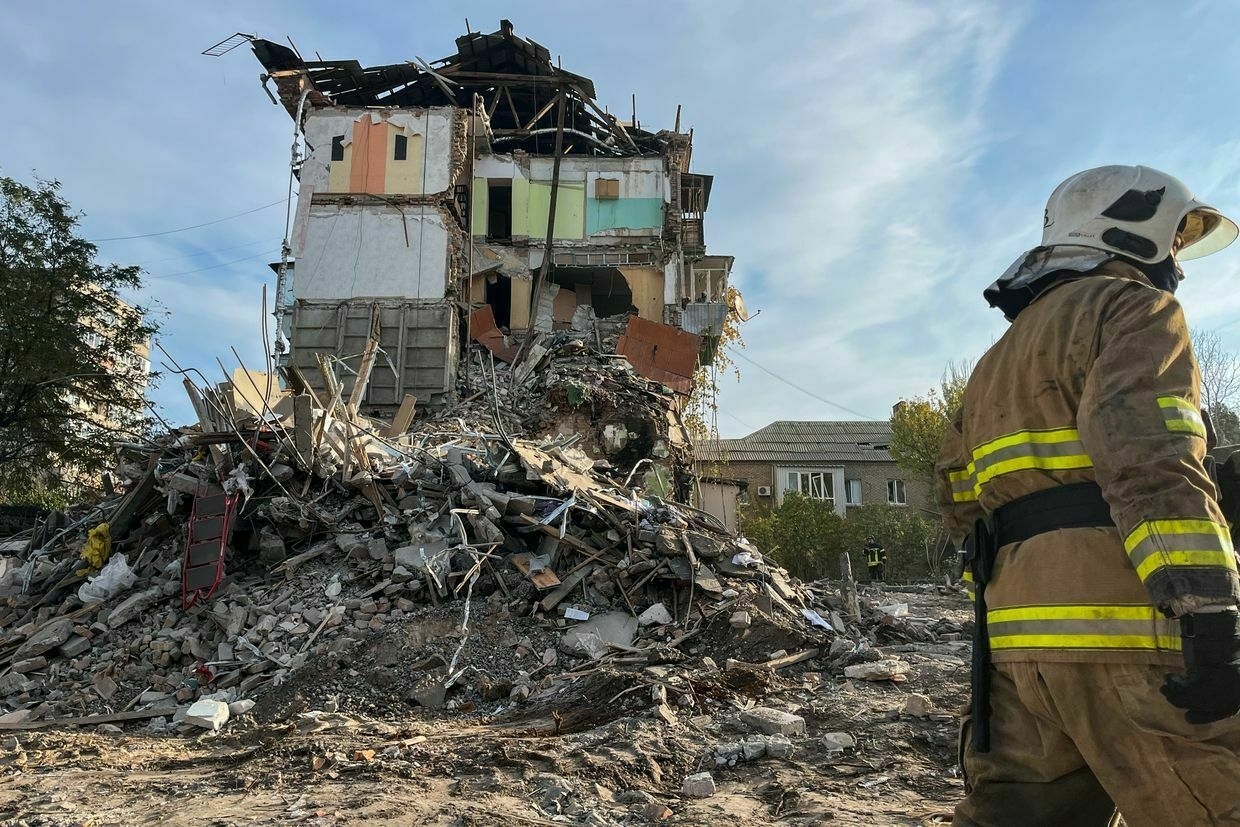
Anton sees Russia’s maximalist demands as a delay tactic to keep the war going: “Russia doesn’t want to negotiate,” he said. “As long as Russia has the financial or military ability, they will fight to their very last ruble.”
Though he was born and raised in Zaporizhzhia, he doesn’t feel he could ever live in the region if it were captured or handed over to Russia.
“If, God forbid, Russia comes here, then I don’t want to live with them here. They killed so many Ukrainians,” he said. “I don’t know if I can get used to another oblast, but I definitely wouldn’t want to live here. Definitely not with them.”
‘I wake up in a cold sweat’
For residents of Kherson, the concept of Russian control isn’t theoretical. The city remained under Russian occupation for 256 days from February to November 2022, before it was liberated during the Kherson counteroffensive.
Dementiy Bilyi, a 56-year-old political scientist and local historian living in Kherson, was put on a blacklist by Russian occupation authorities because of his pro-Ukrainian activities and political writing. He was forced to remain in hiding while living in the city to avoid filtration and potential interrogation, torture, or abduction.
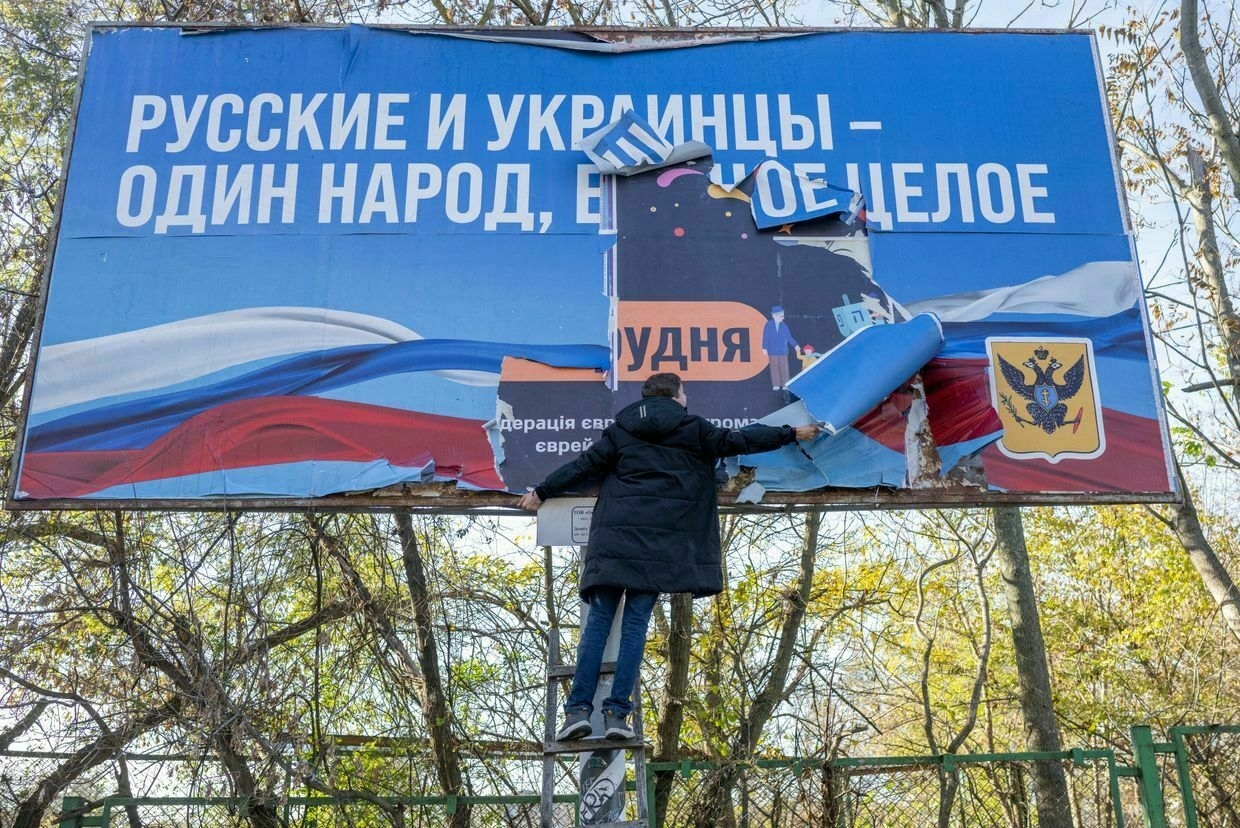
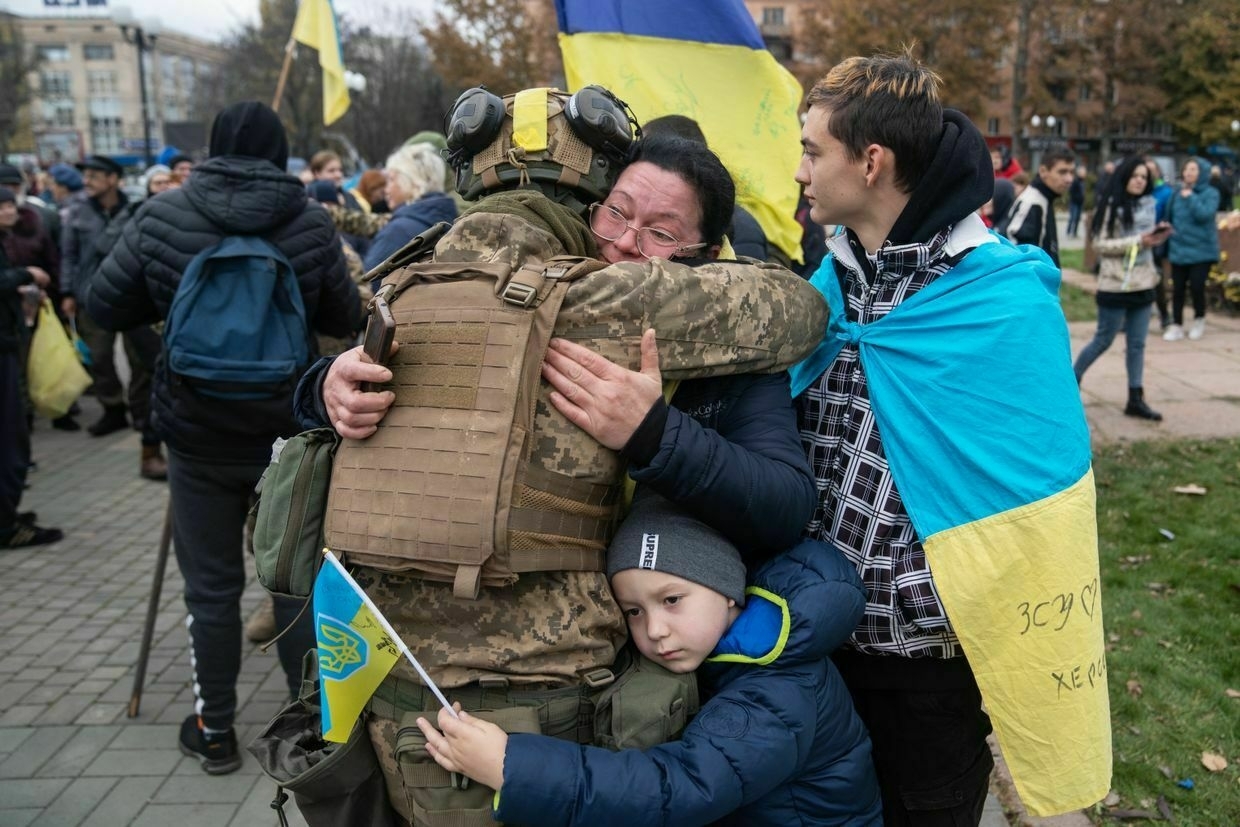
Since then, Bilyi has recurring nightmares that Kherson is surrendered to Russia. “This is one of my worst nightmares. I wake up in a cold sweat,” he told the Kyiv Independent by phone from his home in Kherson. “But I know that Kherson will not be voluntarily relinquished.”
“There was no referendum; it was just a propaganda show held in certain places under the control of Russian armed soldiers.”
Bilyi said he witnessed Russian soldiers gather small crowds for the referendum, then record fake results. “There was no referendum; it was just a propaganda show held in certain places under the control of Russian armed soldiers,” Bilyi told the Kyiv Independent.
“I was personally distraught by Steve Witkoff's statements that we allegedly had referendums and that people voted to join Russia. This is just slander. This lie is simply outrageous,” he added.
It has been hard watching the new U.S. administration led by Donald Trump discuss Ukraine, Bilyi said, noting that watching Trump berate Zelensky in the Oval Office was “one of the most challenging moments” of his life and the war.
‘We know what it is like to be hunted down’
Today, drone attacks continue nearly around the clock in Kherson, and artillery shelling hammers civilian buildings throughout the day. Residents describe moving throughout the city as being like playing the lottery since there is no way to predict attacks. Schools and preschools are held online. With danger too high for many repair crews, parts of the city have no electricity, water, or gas supplies.
Kherson remains right on the edge of Russian-occupied territory, with Russian troops carrying out relentless attacks from where they hold the other bank of the Dnipro River less than a kilometer (0.6 miles) away.
Natalia Shatilova-Pohasiy, a volunteer and acting head of the Dnipro District Organization of the Ukrainian Red Cross Society in Kherson, has stayed because her father and low-mobility mother live nearby, as well as to help others who are low-mobility, disabled, or elderly.
“This is a red zone for many foundations, and security policies do not allow their volunteers to enter Kherson, but someone needs to stay here,” she said.
While Kherson was occupied, she was interrogated by the Russian Federal Security Service (FSB), but says she was “lucky enough not to be injured or mutilated.”
“Many of my colleagues have indeed gone missing and have been left with injuries. Their lives have changed a lot, physically and mentally. We know what it is like to be hunted down, to be followed at night, to be searched and harassed.”
"And now, their lives are again under threat due to Russian terror."
“So definitely no, we will not stay here (if Russia comes again),” she added.
Today, shops, hairdressers, post offices, and coffee shops remain open in Kherson. Residents continue to plant flowers and trees — a gesture of hope for the future.
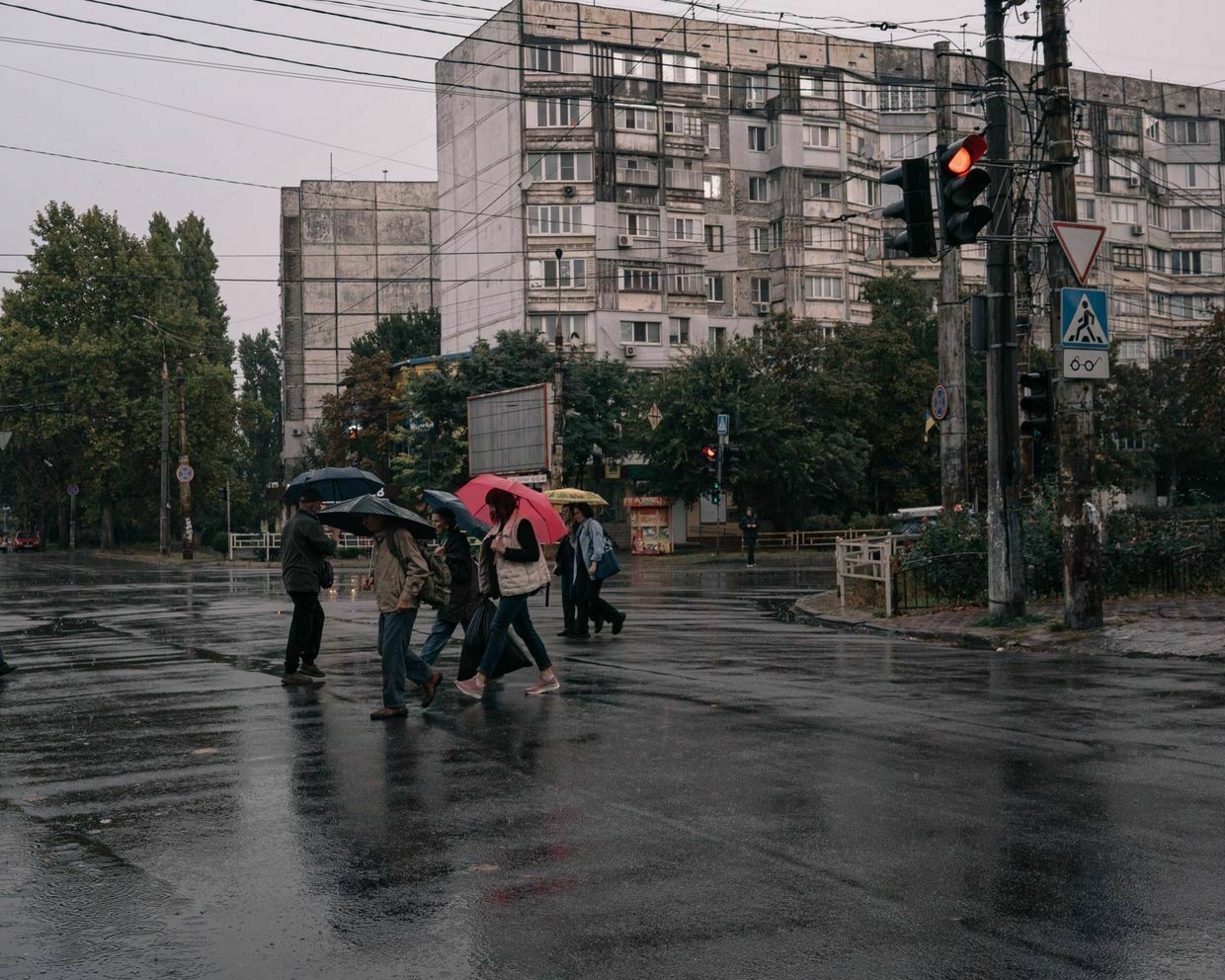
“I want to note that Zaporizhia and Kherson are not occupied, and many people who left the occupied territories live in these cities. They lost their homes and are trying to build their lives anew. And now, their lives are again under threat due to Russian terror,” said Olena Hubanova, co-chair of the charity “Helping to Leave,” which works to evacuate and reintegrate Ukrainians displaced by the war.
Hubanova herself was displaced and has been living in Zaporizhzhia for a decade, after her home in Luhansk Oblast was occupied.
“I want every person in power, when talking about territories, to realize that territories are, first and foremost, people,” she said.
Note from the author:
Hi, my name is Andrea Januta. I reported this story with my colleague Yuliia Taradiuk and traveled to Zaporizhzhia to meet with residents. While politicians debate Ukrainian territory in abstract terms, we feel it’s crucial to remember that the stakes are not lines on a map, but Ukrainians living on this land. As a Ukrainian paper, we aim to elevate their voices.
If you believe in the importance of this work, please consider supporting our work by becoming a member of the Kyiv Independent.
 The Kyiv IndependentThe Kyiv Independent
The Kyiv IndependentThe Kyiv Independent